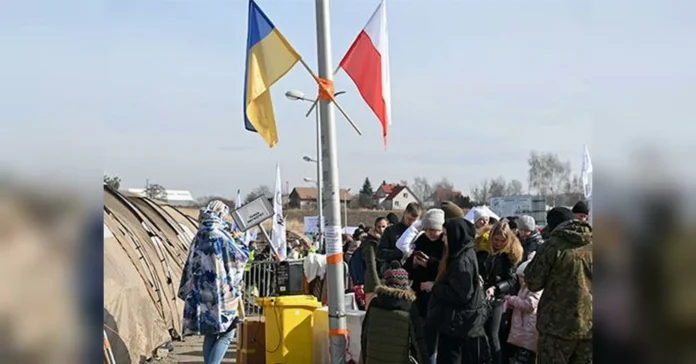The number of Ukrainian refugees in Germany, the Netherlands, and Norway has significantly increased in recent years. This is a result of the ongoing conflict in Ukraine, which has forced many people to flee their homes in search of safety and stability.
According to the United Nations High Commissioner for Refugees (UNHCR), as of 2020, there are over 1.4 million Ukrainian refugees and internally displaced persons (IDPs). This number has more than doubled since 2014, when the conflict in eastern Ukraine began.
Germany, the Netherlands, and Norway have been among the top destinations for Ukrainian refugees. These countries have provided a safe haven for those fleeing the violence and turmoil in their home country.
Germany, in particular, has seen a significant increase in the number of Ukrainian refugees. According to the Federal Office for Migration and Refugees (BAMF), there were over 100,000 Ukrainian asylum seekers in Germany in 2019, making them the largest group of asylum seekers in the country. This is a sharp increase from 2014, when there were only 1,000 Ukrainian asylum seekers in Germany.
The Netherlands has also seen a rise in the number of Ukrainian refugees. In 2019, there were over 10,000 Ukrainian asylum seekers in the country, compared to only 1,000 in 2014. The Dutch government has been actively working to provide support and assistance to these refugees, including offering language courses and integration programs.
Norway, a country known for its humanitarian efforts, has also welcomed a significant number of Ukrainian refugees. In 2019, there were over 5,000 Ukrainian asylum seekers in Norway, compared to only 500 in 2014. The Norwegian government has been providing financial assistance and housing to these refugees, as well as offering them the opportunity to learn the Norwegian language and culture.
The increase in the number of Ukrainian refugees in these countries is a testament to the generosity and compassion of the German, Dutch, and Norwegian people. These countries have opened their doors to those in need and have provided them with a chance to rebuild their lives.
However, the journey for Ukrainian refugees is not an easy one. Many have left behind their homes, jobs, and loved ones in search of safety. They face numerous challenges, including language barriers, cultural differences, and difficulties in finding employment.
Despite these challenges, many Ukrainian refugees have been able to successfully integrate into their new communities. They have started new businesses, found employment, and have become active members of their new societies.
The increase in the number of Ukrainian refugees in Germany, the Netherlands, and Norway has also had a positive impact on these countries. Many of these refugees bring valuable skills and talents, contributing to the economy and society. They also bring with them their rich culture and traditions, adding diversity to their new communities.
The German, Dutch, and Norwegian governments have also recognized the importance of supporting these refugees and helping them integrate into their new homes. They have implemented various programs and initiatives to assist with language learning, job training, and cultural integration.
In addition, many non-governmental organizations (NGOs) and volunteer groups have also stepped up to provide support and assistance to Ukrainian refugees. These organizations offer a range of services, from legal aid to psychological support, to help these refugees navigate their new lives.
The increase in the number of Ukrainian refugees in Germany, the Netherlands, and Norway is a reminder of the ongoing conflict in Ukraine and the devastating impact it has had on the lives of its people. It is also a testament to the resilience and strength of the Ukrainian people, who have shown incredible courage and determination in the face of adversity.
As the conflict in Ukraine continues, it is crucial for the international community to continue providing support and assistance to those affected by it. The generosity and compassion shown by countries like Germany, the Netherlands, and Norway serve as an example for others to follow.
In conclusion, the increase in the number of Ukrainian refugees in Germany, the Netherlands, and Norway is a reflection of the ongoing conflict in Ukraine and the need for a safe haven for those affected by it. These countries have shown great compassion and generosity in welcoming these refugees and providing them with the support they need to rebuild their lives. It is our hope that the situation in Ukraine will improve, and these refugees will one day be able to return to their homes and communities.

